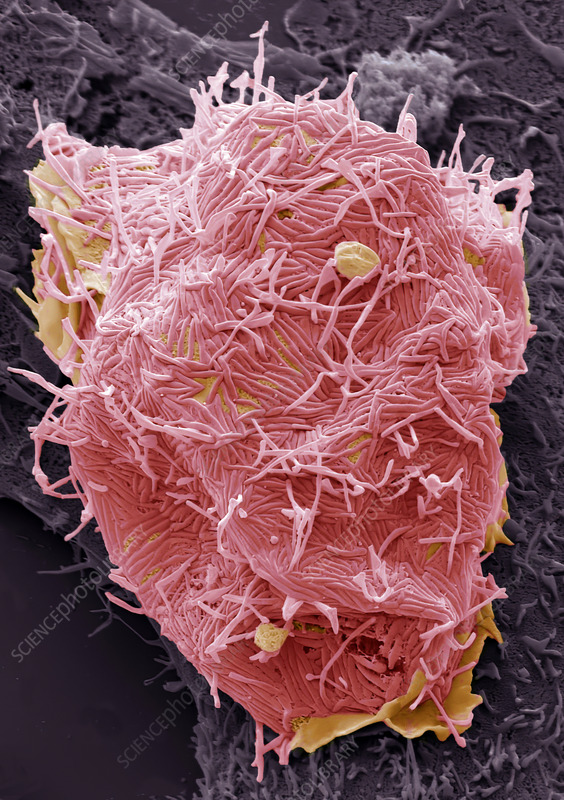On January 17, 2025, the Ghana Health Service (GHS) sounded an early warning about an uptick in acute respiratory infections (ARIs) globally, particularly connected to Human Metapneumovirus (hMPV) in the Northern Hemisphere, while reassuring Ghanaians that robust measures are in place to prevent domestic outbreaks.
The Human Metapneumovirus, first identified in 2001, causes respiratory illness ranging from mild “common cold” symptoms to severe lower-respiratory tract disease in vulnerable groups. The virus has been implicated in a winter surge of ARIs across Europe, North America, and parts of Asia since December 2024.
A World Health Organization risk assessment on January 7, 2025, noted that “the surge in acute respiratory infections and related pathogens across the Northern Hemisphere is expected during this time of year and is not unusual”.
In response, GHS convened its Public Health Emergency Operations Centre (PHEOC) to evaluate Ghana’s vulnerability and readiness. Dr. Patrick Kuma-Aboagye, Director-General of GHS, affirmed: “We have activated heightened surveillance and testing protocols across all 16 regions to ensure that any unusual respiratory pathogen is detected early”. To date, weekly samples sent to the National Influenza Centre (NIC) have shown no evidence of hMPV or other novel viruses in Ghanaian patients.

The GHS has expanded case‐based monitoring of ARIs at district and regional health facilities, with real‐time reporting through the Integrated Disease Surveillance and Response (IDSR) platform. Additional PCR capacity is also being rolled out in zonal laboratories, ensuring prompt testing for influenza, RSV, hMPV, and emerging respiratory pathogens. Epidemiologists are consistently and constantly conducting weekly reviews of respiratory disease trends in the Northern Hemisphere to anticipate possible importation risks.
The Service has furthermore launched community‐level Social Behavioural Change (SBC) activities, distributing posters, radio spots, and social‐media messages to reinforce preventive behaviours. The hMPV spreads via droplets expelled when an infected person coughs or sneezes, and through contact with contaminated surfaces. Typical symptoms include cough, fever, sore throat, nasal congestion, body aches, and headache; severe cases may feature persistent cough, dyspnea, chest pain, and dehydration.
Those at highest risk for complications are children under five, adults over 65, individuals with asthma or COPD, and the immunocompromised. While most hMPV infections resolve with supportive care, early detection remains vital to prevent hospitalizations.
Thus, the GHS urges the public to adopt “good respiratory hygiene,” including covering of the mouth and nose with a tissue or elbow when sneezing or coughing, washing the hands frequently with soap and water or using alcohol-based sanitizers, avoiding touching the face with unwashed hands, wearing face masks in crowded or poorly ventilated spaces, seeking prompt medical attention for flu-like symptoms and maintaining a balanced diet rich in fruits and vegetables to support immune function.
Dr. Kuma-Aboagye provided assurance that “all necessary measures are being taken to safeguard the health of Ghanaians” and pledged that the GHS would “continue to monitor the situation closely and provide timely updates”. The Director-General also appealed to media outlets to “collaborate with health authorities in debunking misinformation and rumours” highlighting the role of accurate communication in maintaining public trust and avoiding public unrest and panic.
Ghana’s proactive stance on ARIs and hMPV in particular, demonstrates the country’s commitment to epidemic preparedness. By integrating enhanced surveillance, laboratory reinforcement, behavioral change initiatives, and leadership engagement, GHS is strengthening the nation’s first line of defense against seasonal surges and emerging viral threats.
As global surveillance networks track respiratory pathogens, Ghana’s model offers a blueprint for balancing vigilance with evidence-based response—ensuring that any respiratory outbreak is contained before it becomes a national crisis.
Source: Ghana Health Service Warns of Rising Acute Respiratory Infections



